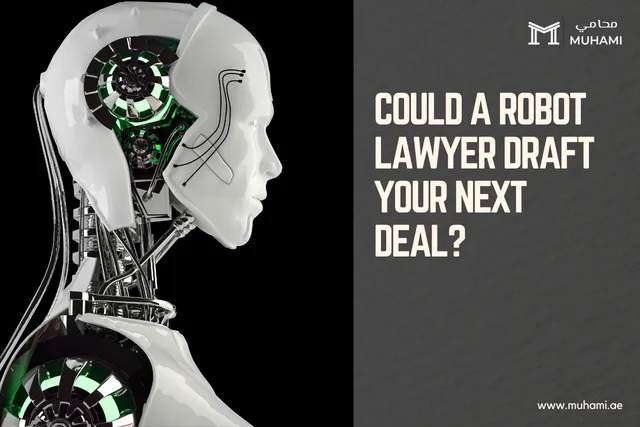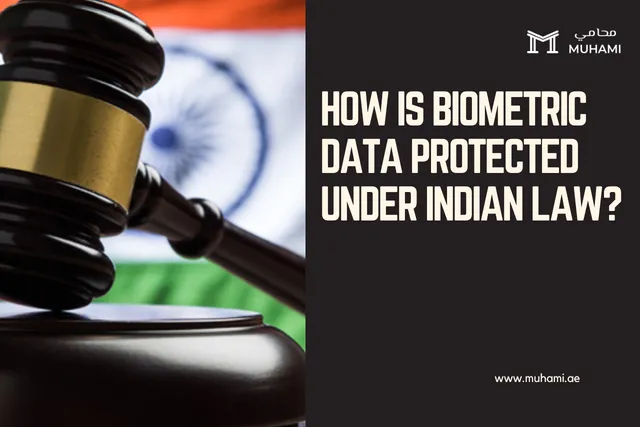Blockchain and Smart Contracts: Revolutionising Real Estate Transactions

Blockchain technology has gained tremendous traction in various sectors, and the real estate industry is no exception. Offering unprecedented levels of transparency, efficiency, and automation, blockchain promises to fundamentally change how property transactions are handled. One of the most exciting innovations is the use of smart contracts—self-executing agreements that streamline processes, reduce the need for intermediaries, and make transactions faster and more secure.
However, while these technological advancements are revolutionising the way we think about real estate, they also raise significant legal questions. Are smart contracts legally enforceable within traditional legal frameworks, particularly in real estate dealings? What happens when a blockchain-based real estate transaction faces a dispute, and how will courts interpret digital agreements? These are just some of the issues that need to be carefully considered, especially in regions like the UAE, where real estate is a vital part of the economy.
What Makes Blockchain Attractive for Real Estate Transactions?
Blockchain operates as a distributed ledger, meaning all transactions are recorded and verified across multiple computers in a decentralised system. This offers several key benefits for real estate:
- Transparency: Every transaction on the blockchain is visible to all parties involved, reducing the potential for fraud or miscommunication. The decentralised nature of the system also ensures that no single entity can manipulate transaction records.
- Efficiency: Traditional real estate deals often require numerous intermediaries—agents, lawyers, banks—all of which add complexity and time. Blockchain streamlines these processes, reducing the time needed to close deals.
- Security: Blockchain’s cryptographic methods make it extremely difficult to alter or hack transaction records, offering a level of security that traditional databases lack. For industries handling large sums of money and sensitive data, such as real estate, this is a game-changer.
- Automation via Smart Contracts: Smart contracts eliminate the need for manual intervention in key stages of a transaction. Once specific conditions are met (e.g., payment is transferred or a deed is signed), the smart contract automatically executes the next step, such as transferring ownership.
What Are Smart Contracts?
Smart contracts are self-executing pieces of code embedded in a blockchain network. They are designed to facilitate, verify, and enforce the performance of a contract without requiring third-party oversight. In real estate, smart contracts can be used to automate tasks like:
- Escrow management: Funds can be automatically released when certain conditions are met.
- Title transfer: Property titles can be automatically transferred once payment is verified.
- Lease agreements: Rental payments and contract terms can be coded into a smart contract to automate monthly transactions and renewals.
This automation reduces the reliance on lawyers, brokers, and even banks, making real estate transactions quicker and more cost-effective.
Legal Enforceability of Smart Contracts in Real Estate
While smart contracts sound promising in theory, their legal enforceability remains a grey area. Unlike traditional contracts, which involve detailed terms and may leave room for interpretation, smart contracts are rigid and governed purely by code. But the law is nuanced—there are many situations where human interpretation of contract terms is necessary. For example, how would a smart contract handle force majeure situations, such as a natural disaster that prevents one party from fulfilling their obligations?
In the UAE, contract law is primarily governed by the UAE Civil Transactions Law (Federal Law No. 5 of 1985), which requires a “meeting of the minds” (mutual agreement) for a contract to be legally binding. This raises questions about whether automated contracts meet this standard. Can code, without human interpretation, represent genuine consent?
Furthermore, real estate transactions in the UAE involve strict regulations, especially regarding foreign ownership, freehold zones, and transfer of property titles. It remains unclear whether the UAE legal system will fully recognise smart contracts for real estate dealings without manual verification by government bodies such as the Dubai Land Department (DLD).
Potential Legal Disputes and Smart Contract Limitations
Despite their advantages, smart contracts are not immune to disputes. Blockchain’s immutability means that once a contract is executed, it cannot be altered. If an error occurs in the contract’s coding or execution, resolving the issue can become legally complicated. For instance:
- Breach of Contract: If one party fails to fulfil its obligations, will the automated nature of smart contracts allow for renegotiation or rectification? Traditional contracts often provide dispute resolution mechanisms that can be flexible, but smart contracts do not inherently have this capability.
- Fraud or Misrepresentation: What happens if one party provides false information that leads to the smart contract executing improperly? Blockchain’s transparency does offer some protection against fraud, but there’s still room for human deception. How will the courts view such issues?
- Jurisdictional Conflicts: In cross-border real estate transactions, smart contracts could be executed globally, but the legal jurisdiction is local. UAE courts may need to decide how to handle disputes in transactions that occur on blockchain systems hosted outside the country.
How is the UAE Adapting to Blockchain Technology?
The UAE is already one of the world’s most forward-thinking nations when it comes to blockchain adoption. The Dubai Blockchain Strategy 2021 aimed to make Dubai the world’s first city fully powered by blockchain, with government bodies, including the Dubai Land Department, already utilising blockchain for real estate transactions. Through its Real Estate Self Transaction (REST) platform, DLD allows people to complete property sales and rental agreements digitally, powered by blockchain.
However, despite these strides, the legal framework for blockchain real estate transactions is still evolving. The UAE has yet to develop comprehensive laws that address the enforceability of smart contracts in real estate, meaning there is a potential risk for parties who rely solely on blockchain without involving traditional legal safeguards.
The UAE’s Securities and Commodities Authority (SCA) is working on regulations to manage the tokenisation of assets, including real estate, which suggests that tokenised property sales via blockchain might soon be fully integrated into the legal framework. Still, the road to full adoption of blockchain in real estate remains complex, with regulatory challenges around ownership verification, AML compliance, and data privacy still to be addressed.
Conclusion: Navigating Blockchain’s Legal Terrain in Real Estate
Blockchain and smart contracts have the potential to dramatically change the real estate industry, making transactions faster, more transparent, and less reliant on intermediaries. However, as with any disruptive technology, there are significant legal challenges that need to be addressed. For real estate professionals, investors, and lawyers in the UAE, understanding the legal nuances of blockchain-based transactions is critical to avoiding potential pitfalls.
While the UAE is leading the way in blockchain adoption, the legal framework must continue to evolve to ensure that smart contracts and tokenised assets are fully recognised under property law. For now, parties engaging in blockchain-based real estate deals should work closely with legal professionals to ensure that their transactions are not only efficient but also legally sound.
Any Questions?
Connect with lawyers and seek expert legal advice
Share
Find by Article Category
Browse articles by categories
Featured Partnership
Lawcloud
LawCloud: All-in-One Legal Practice Software
Related Articles

AI and Contracts: Could a Robot Lawyer …
At a co-working space in Dubai Marina, a startup founder leans over her laptop.…

AI and Contracts: Could a Robot Lawyer Draft Your…
At a co-working space in Dubai Marina, a startup …

How Do We Regulate Chatbots? A Closer L…
Conversational AI (technology that enables machines to engage in human-like dia…

How Do We Regulate Chatbots? A Closer Look
Conversational AI (technology that enables machin…

How is Biometric Data Protected Under I…
INTRODUCTION Biometric data, including fingerprints, facial scans, and…

How is Biometric Data Protected Under Indian Law?
INTRODUCTION Biometric data, including f…
